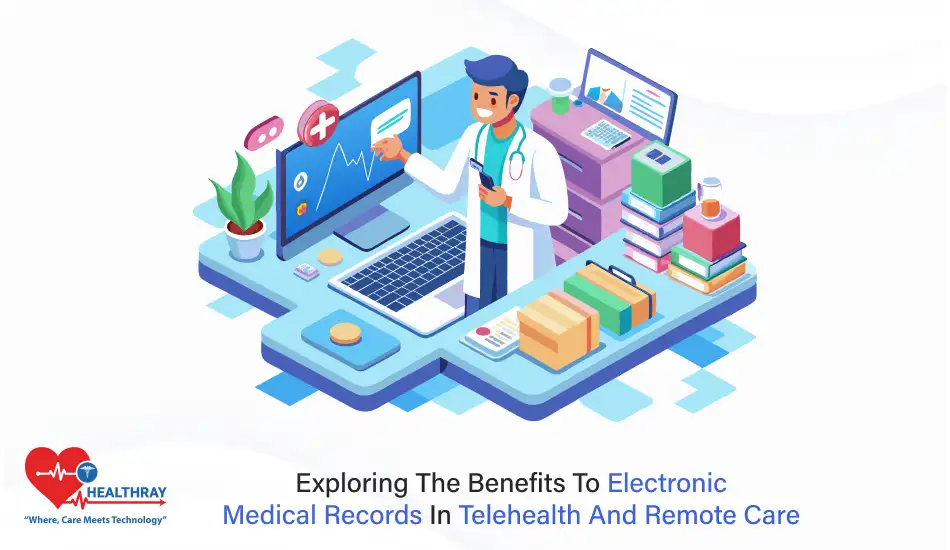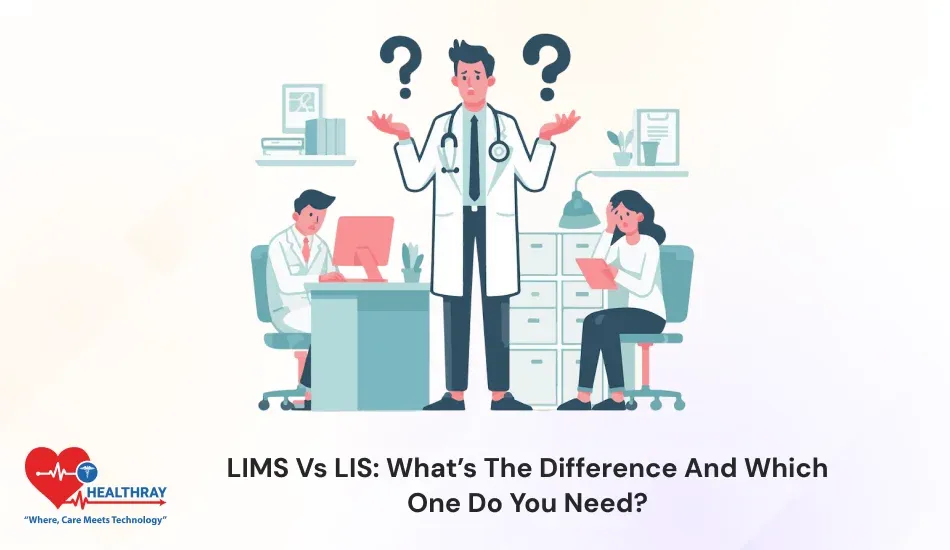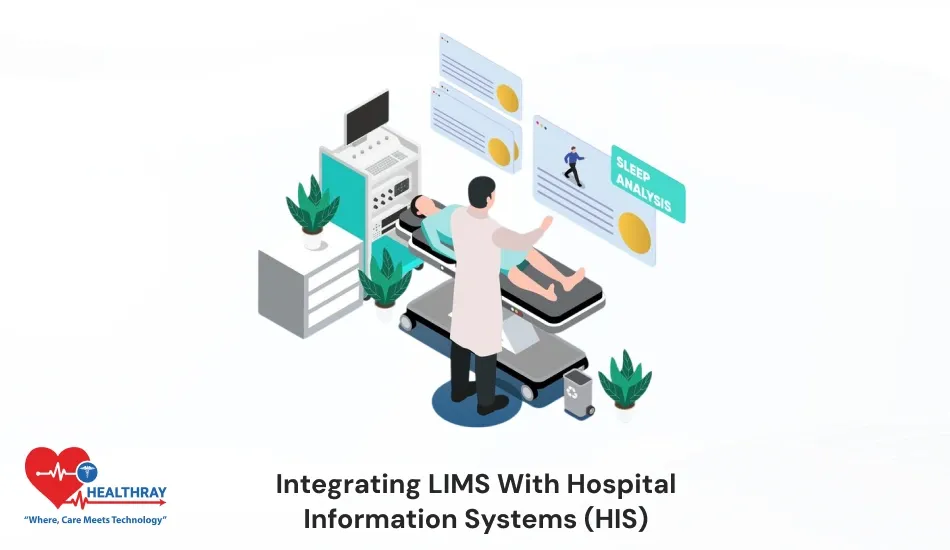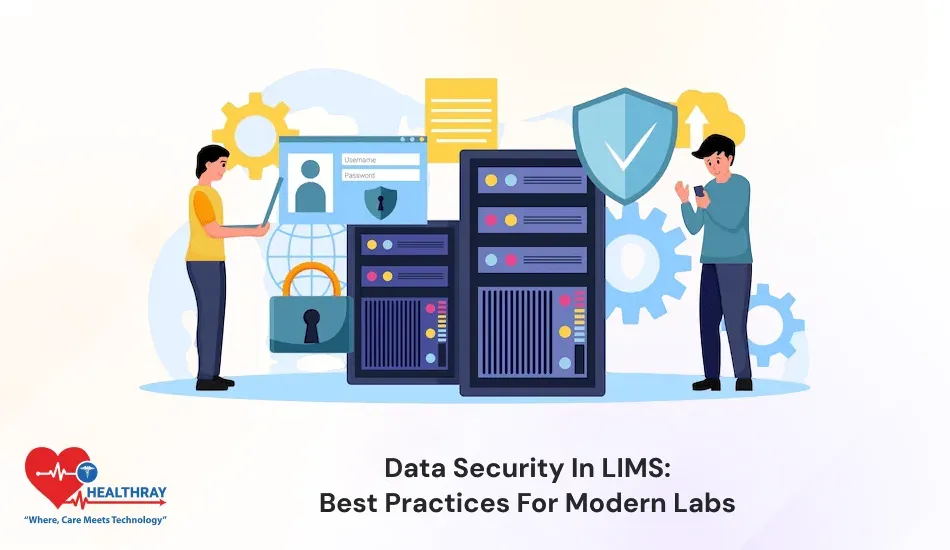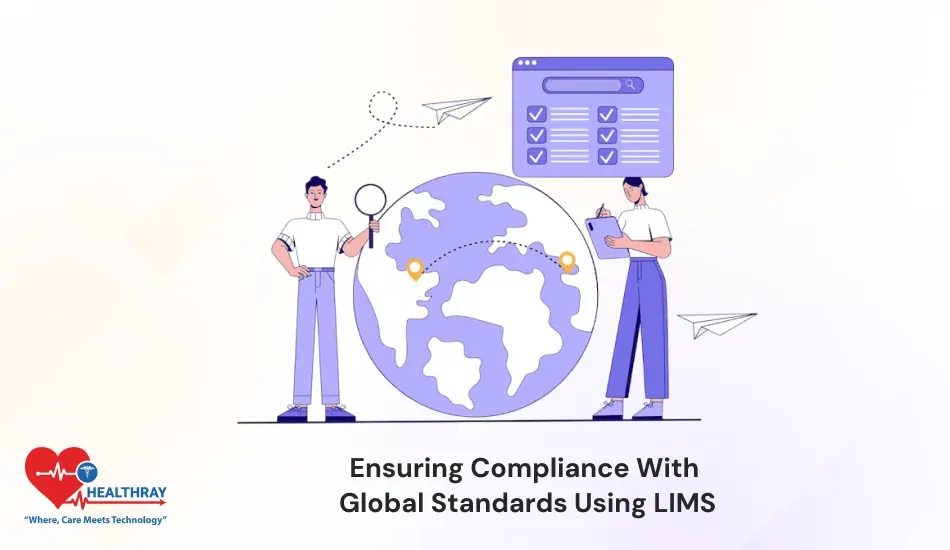Summary
EMR adoption is an important step towards an integrated, productive, and patient-focused medical system. EMR systems help doctors and authorized professionals to access real-time data of healthcare organizations; this makes the patient care more accurate and coordinated. Emr reduces paperwork and administrative burden and provides information-based insights to hospitals or medical organizations. Are you still relying on outdated approaches to run your clinic? It’s time to upgrade. In this blog, I will discuss some interesting benefits to electronic medical records in telehealth and remote care. Also, I will discuss how EMR software helps hospitals minimize their workloads and build a safe environment for both patients and hospitals.
Introduction
Electronic Medical Records (EMRs) have changed the entire healthcare system. EMR has replaced the traditional system with a digital, centralized platform where complete healthcare data is stored securely. Furthermore, EMR software is basically a digital version of a patient’s healthcare record that includes past medical records, prescriptions, medications, allergies, vaccination status, laboratory results, and diagnostic images.
Emr is not just a record-keeping platform, but it also helps doctors in decision-making; It offers automatic alerts for drug interactions and treatment reminders and provides support tools for clinical decisions. Through these features, doctors can provide better and safer treatment to their patients. Plus, emr provides immense benefits to patients; Patients receive immediate access to their healthcare data. It improves the communication; now patients can easily share their health information with doctors and take advice from them by sitting anywhere in the globe.
Benefits to Patients
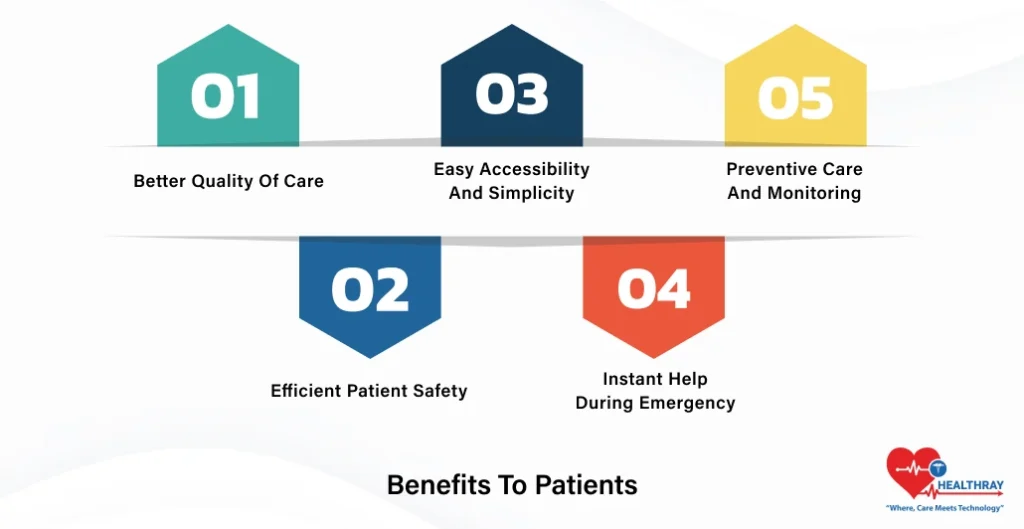
Let’s check out:
Better Quality of Care
With EMR, doctors get a complete picture of patient data in a single dashboard. Further, it eliminates the need to call every department and take patient data individually. EMR helps doctors and other departments to access all patient data, such as diagnoses, medicines, allergies, lab results aur treatment plans. Further, it helps hospitals make accurate and informed decisions. As a result, clinical decision support systems enable quick, safe diagnosis and the provision of individualized care.
Efficient Patient Safety
Emr reduces the human errors created by incomplete records and illegible handwriting. Furthermore, in the old system, doctors take considerable time to check patients’ records and provide them treatment. But modern emr has reduced the risks of manual errors. Additionally, the Electronic Medical Records workflow automation system provides automatic alerts to doctors if there are high chances of medicine allergy or drug interaction. Overall, hospital management solutions make the medical workflows safe, fast and efficient.
Easy Accessibility and Simplicity
Under the conventional system, patients had to go to clinics or hospitals to check their prescriptions and reports. Further, with EMR, they can easily access their reports online by sitting anywhere in the globe. Patient portals ease communication with doctors. Thus, electronic medical software enables doctors to provide better care to patients and also improves the communication gap between them.
Instant Help During Emergency
In an emergency situation, a doctor takes adequate time to check medical records, leading to a delay in the treatment process. However, with the EHR support solution, this problem has completely disappeared. Further, Clinical support software enables doctors to instantly view important patient data such as allergies, past treatments aur medications. If the patient is incapable of speaking, then also the patient will get fast and accurate treatment care. Thus, EMR software enables doctors to take life-saving decisions quickly.
Preventive Care and Monitoring
In the traditional system, doctors missed out on follow-ups and preventive check-ups as manual tracking was challenging for them. Further, with EMR, doctors no longer need to worry about missed appointments and important patient cases. The EMR system for hospitals automatically sends alerts when patients need screening, vaccination, or routine tests. Moreover, doctors can take timely actions and patients can track their health goals. Overall, emr clinical software is not just limited to treatment but also helps doctors in long-term preventive care or continuous monitoring.
Benefits to Healthcare Providers
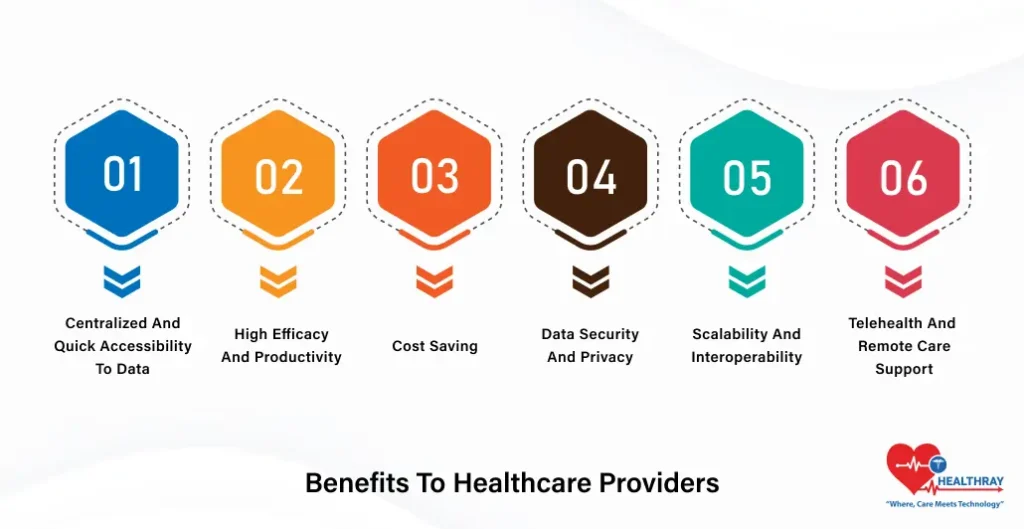
Let’s check out:
Centralized and Quick Accessibility to Data
In paper-based systems, patients’ records are distributed in different departments; this makes the coordination difficult. Furthermore, with an AI in EMR system, hospitals can store all their patient data in a centralized system. Moreover, doctors ,nurses and admin staff can access and amend documents at the same time. Overall, hospital information systems make the communication fast, reduce delays and make the entire medical operation smooth and efficient.
High Efficacy and Productivity
In manual infrastructure, doctors and staff require considerable time in paperwork and claim handling. However, with an EMR system, hospitals can automate all their exhausting operations, such as billing, coding and report generation. In this way, clinical software reduces manual errors and expedites the medical workflows. Also, doctors can focus their time on patients’ care, consequently elevating both productivity and accuracy in the medical system.
Cost Saving
In the conventional system, paper files, printing and storage costs were high. Along with this, manual errors or duplicate tests further enhance the hospital expenses. Are you still facing challenges with controlling budgets? It’s time to upgrade!!!.
With emr solutions, hospitals can easily cut down their expenses on operations such as physical storage, stationery and admin labor. Further, automated billing and accurate record-keeping improve revenue management in the medical system. Additionally, emr reduces medical errors and readmissions and saves substantial costs for hospitals in the long term.
Step towards digital era with our healthcare solution
Revamp your hospital facilities and embrace change for better healthcare management. Ease in managing and organizing large medical datasets leads to effective analysis. Seize the opportunity now!
Data Security and Privacy
Traditional hospital systems were more prone to data loss and unauthorized access risks. However, modern emr system uses advanced security tools, such as encryption, password protection and access control; this will keep the patient information completely safe. Emr software records all medical activities in an audit trail so that hospitals can trace any unauthorized modification. The EMR system strictly adheres to data privacy laws; this will establish strong trust and transparency among healthcare providers and patients.
Scalability and Interoperability
Hospitals frequently face challenges with software expansion and data sharing. Unlike traditional systems, modern EMRs are flexible and scalable. As your clinics grow, emr system can effortlessly add new components and users. Plus, interoperability features allow different hospitals and clinics to share their data securely. Overall, emr clinic platforms ensure organized care and make the patient treatment process smooth.
Telehealth and Remote Care Support
In the conventional healthcare system, it was hard for remote area patients to reach out to doctors for instant help. However, with EMR, telehealth services have become easy.
Both patients and doctors can readily access patient records remotely and conduct video consultations with them. Emr system makes the consultation fast and minimizes treatment delays. Also, rural and underserved areas get timely healthcare treatments. Overall, emr software empowers doctors to provide treatment and care irrespective of location. Thus, elevating both accessibility and convenience for remote patients.
Future Impact of EMR on Telehealth and Remote Care
Let’s check out:
Expansion of AI and Predictive Analytics
Telehealth services are becoming more intelligent thanks to artificial intelligence. Further, with AI doctors can easily analyze patient data in real-time, whether it comes from wearables or emr system. Predictive analytics helps doctors to identify early stages of health issues; this helps doctors to prepare timely treatment or personalized care plans.
Greater Integration with Digital Therapeutics
In the future, telehealth and digital therapeutics integration will become stronger. Furthermore, evidence-based digital tools or remote monitoring devices support will make virtual care plans more personalized. Further, this customized plan is especially helpful for mental health, diabetes, and cardiovascular disease patients. This approach will help doctors to monitor patient progress in real time and provide continuous feedback.
Conclusions
Electronic Medical Records bring multiple benefits by enhancing care quality, improving efficiency, ensuring data security, and enabling patient-centered healthcare. Their role in supporting integrated, coordinated, and preventive care is increasingly vital in modern healthcare systems aiming for better outcomes and cost-effectiveness. I hope the aforementioned blogs give you pertinent information about the advantages of electronic medical records and how emr software makes remote patients’ lives easier and more accessible.
